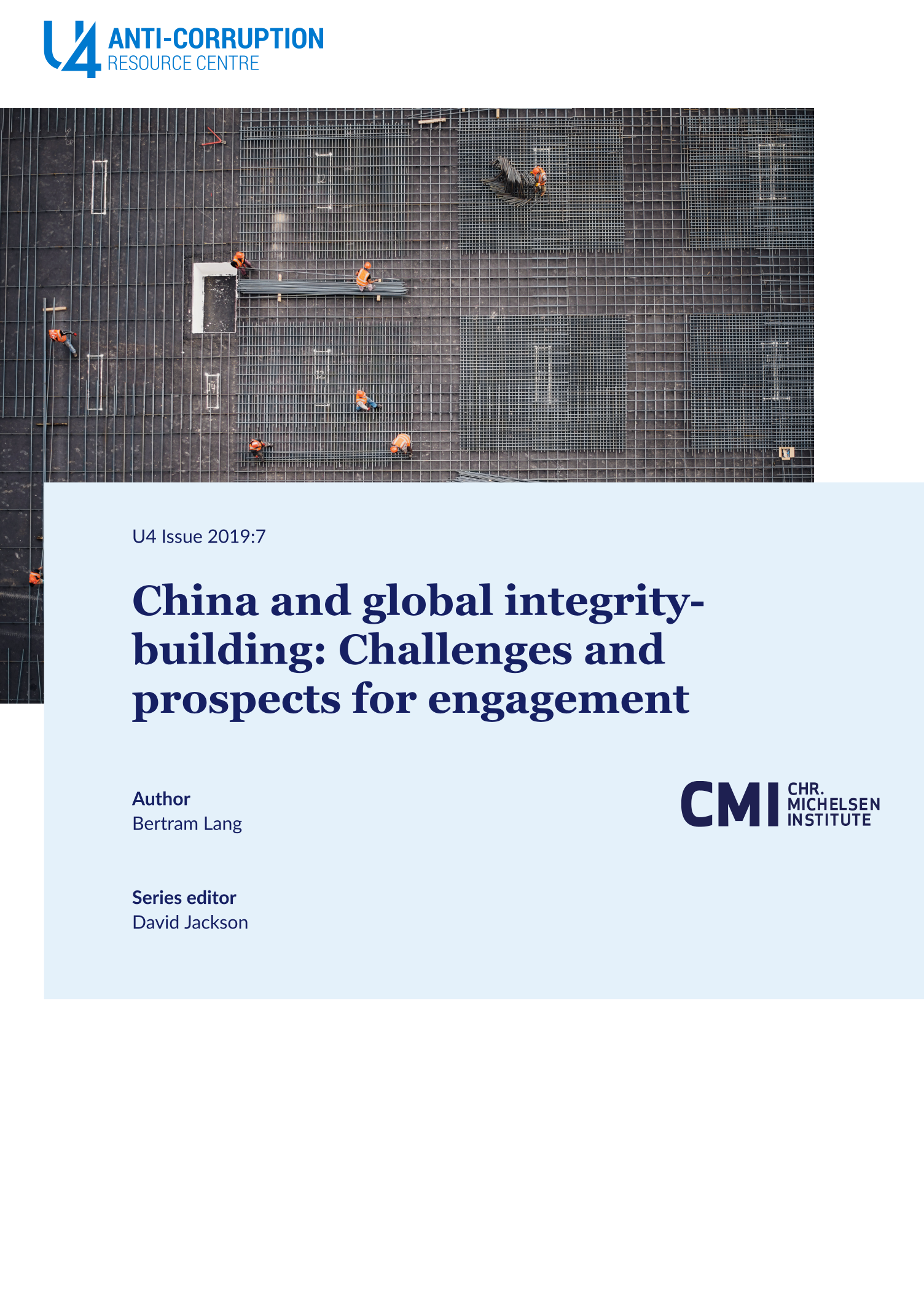Main points
- Contrary to some stereotypes, China’s impact on corruption and integrity-building on a global scale is multifaceted, creating new risks as well as opportunities for multilateral engagement.
- China formally complies with important international anti-corruption norms but still fails to enact anti-bribery provisions abroad. Since 2014, Beijing’s interest in international cooperation against corruption has strongly increased, targeting extradition and asset recovery.
- Growing resistance against Chinese investments and lending in key target countries of its ‘Belt and Road Initiative’ (BRI) could increase Chinese actors’ sensitivity to governance issues. Several Chinese development actors are improving their risk management provisions to include corruption risks in target countries.
- Domestically, Xi Jinping’s sweeping ‘anti-corruption campaign’ is about far more than bribery and embezzlement. It has a strong moralistic and political component, and combines deterrence against bribe-taking and ‘extravagance’ with measures to reinforce party discipline and top-down control.
- Though it is too early to make any conclusions on its likely future direction, China’s new development agency (CIDCA) could lead to increased transparency in Chinese aid, improve intra-bureaucratic coordination and implementation, and facilitate better engagement with multilateral aid agencies as well as with bilateral development partners.
- China’s on-the-ground impact on corruption and integrity-building in developing countries remains ambiguous. Constructive engagement on governance issues appears more likely on ‘softer’ aid issues less influenced by geostrategic interests and economic competition.
- International organisations engaged in anti-corruption efforts at global and regional level represent the most obvious opportunities for constructive exchanges. Another option for development partners is to engage China via ‘triangular cooperation’ projects in third countries.
- Challenges to international integrity-building efforts and potential entry points for Sino-Western engagement are listed in an overview of key issues and actors below (Table 1).



